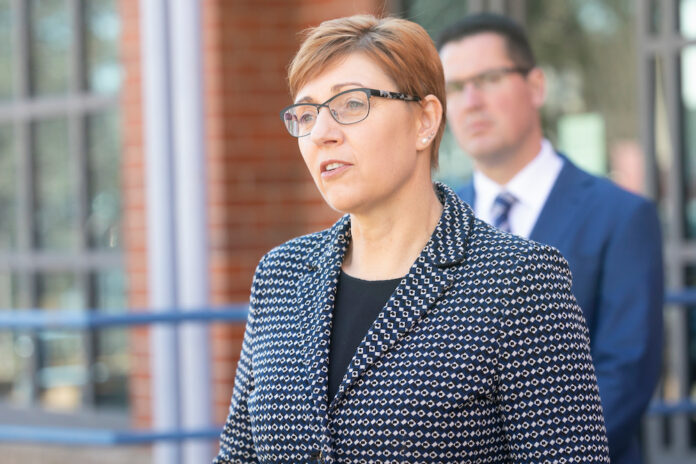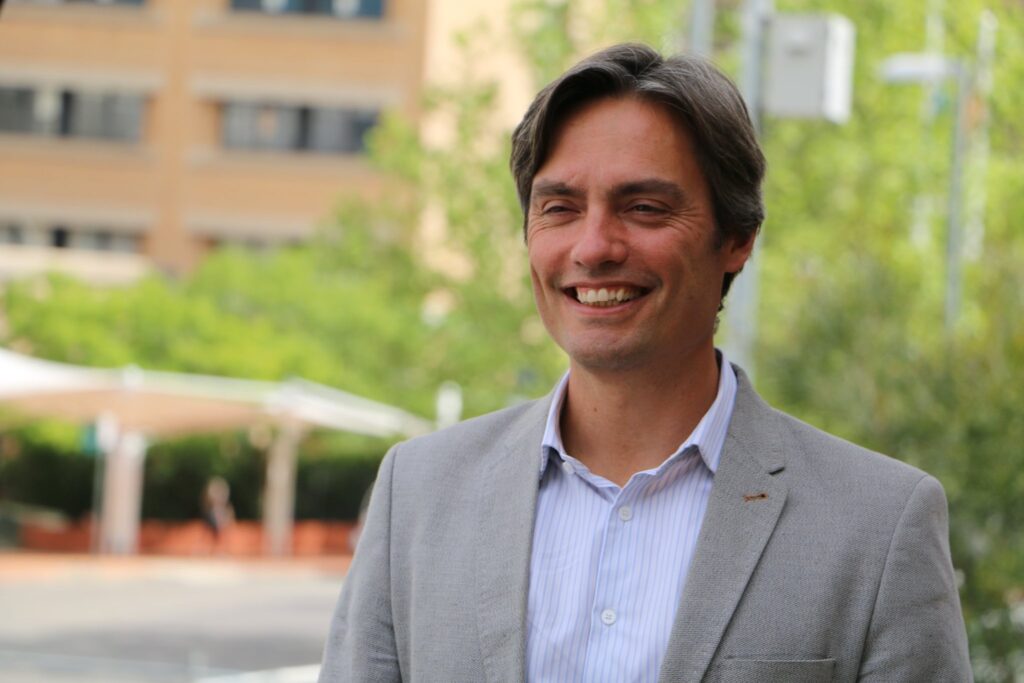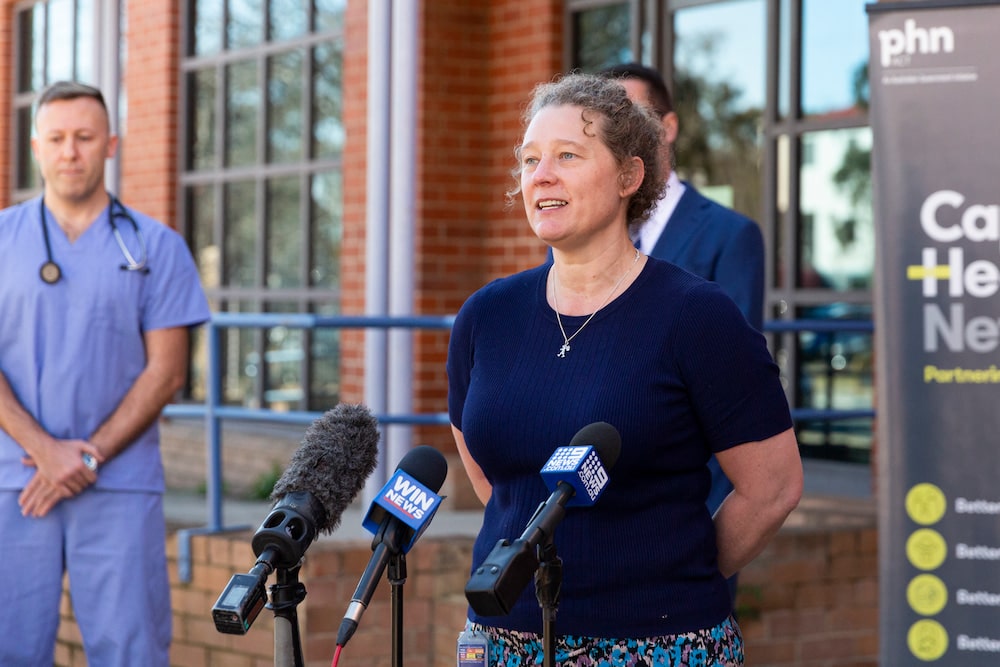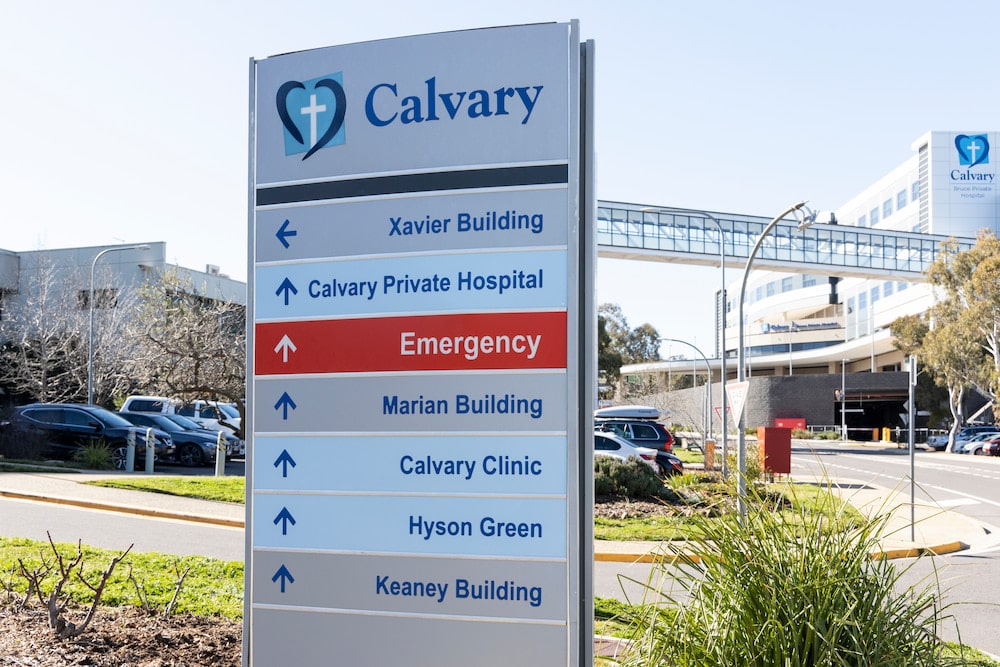
A “very significant” investment of $63 million funding across different areas of COVID-19 pandemic management and health service support will be initiated in February, the ACT Government announced today.
Chief Minister Andrew Barr said the funding announced will be predominantly geared toward ACT Health’s management of vaccine rollouts, and the provision of further resources for Chief Health Officer Dr Kerryn Coleman and her team.
“The pandemic is not over, it still has a long way to run,” Mr Barr said.
Health is the largest area of portfolio expenditure in the ACT’s annual budget, with one dollar in three in the ACT invested in the health system.
Vaccine rollout ‘not a matter of turning up to the GP’
$19 million of expenses and $4.5 million of capital funding will support the launch of the ACT’s COVID-19 vaccine program.
The funding will go toward additional staffing, additional training, and increasing storage capacity and facilities within the ACT, particularly for beyond the first phase of the Pfizer vaccination.
For stage 1a of the vaccine rollout, there will be a facility within the Canberra Hospital campus to be known as the “Pfizer Hub”.
“That will need to be staffed up with staff who are trained to specifically administer this vaccine that has quite specific requirements,” ACT Health Minister Rachel Stephen-Smith said.
With five phases planned for the overall program in the ACT, stage 1a will aim to administer a number of vaccinations “in the thousands”.
The ACT Government will then support a “broader vaccination program” through until at least October.
Canberra Health Services executive director of medical services Dr Nick Coatsworth will be heavily involved in the Territory’s vaccine rollout.
Having played a key national role in the Australian response to COVID-19 as Australia’s former Deputy Chief Health Officer, Dr Coatsworth will bring his expertise to the ACT’s COVID-19 leadership as the vaccine is rolled out over 2021.
“This investment is going to provide the staff and the capacity and the capability for a rapid rollout of the COVID-19 vaccine,” he said.
“It is not a matter of turning up to the GP … we need to get through a lot of people very quickly.”

In the early stages priority will be given to frontline workers, those most likely to be exposed, and those who are most vulnerable to a negative outcome should they contract the virus.
“There will be decisions that are made as we know more about the vaccine … as to whether there are specific population groups that should or should not be vaccinated,” Ms Stephen-Smith said.
“There has been some discussion about whether pregnant women should be vaccinated or not; at this point in time the view is no.”
ACT Health Minister Rachel Stephen-Smith
Ms Stephen-Smith said the ACT is still working with the Commonwealth to determine how many vaccines will arrive in the ACT, when they arrive, and who will receive the first vaccinations.
COVID-19 response to continue for “at least’ the rest of 2021
Ms Stephen-Smith said $39 million of the funding will go toward supporting the ACT’s ongoing COVID-19 response, including the Health Emergency Control Coordination Centre, which works under ACT Chief Health Officer Dr Kerryn Coleman.
The centre was initially set up on 29 January 2020 to respond to COVID-19 and in the past year has worked on contact tracing, logistics, sourcing PPE, working with residential age care facilities to ensure they are as well prepared as they can be for any outbreaks, supporting repatriation flights and “a whole bunch of other operational measures”, Ms Stephen-Smith said.
Other areas of government have taken up more work in response to the pandemic, including, for example, additional cleaning on public transport and in schools, and additional communications resources providing a continuous stream of community information on the ACT’s response to the pandemic.
“This $39 million of the $63 million is about continuing those efforts,” Ms Stephen-Smith said.

The pandemic has brought about major upheaval within the ACT Government’s ranks, with public servants being seconded from other agencies to take on specialist surge roles.
Ms Stephen-Smith said the time has come for many of them to return to their roles, while the positions they have been filling are still required.
“That work will need to continue … our response to it will continue for at least the rest of the year,” she said.
With the lion’s share of the funding being divided between the vaccine rollout and the ACT’s ongoing COVID-19 response, $16.6 million provisioned in August 2020 will be released to undertake critical electrical building services infrastructure upgrades to Building 10 at Canberra Hospital, where the ACT’s primary COVID-19 testing laboratory is located.
$6.5 million in additional funding will also go to Calvary Public Hospital Bruce in response to demand on the northside of Canberra for non-elective surgery, birthing, and general medical supports and responses.
“That’s about recognising the demand in this financial year on Calvary and ensuring that we continue to work with Calvary Public Hospital Bruce as an integral part of our ACT public hospital system,” Ms Stephen-Smith said.
Ms Stephen-Smith was also proud to announce $908,000 has been set aside for Palliative Care ACT to run Leo’s Place.
A homelike respite facility for palliative care, Leo’s Place is a hub where carers can go for advice and support, and where the people they’re caring for can stay for anything from a few hours to a week at a time.
A pilot of this facility has already been set up at a residential four-bedroom house, and this funding will support that pilot for a further 18 months.









